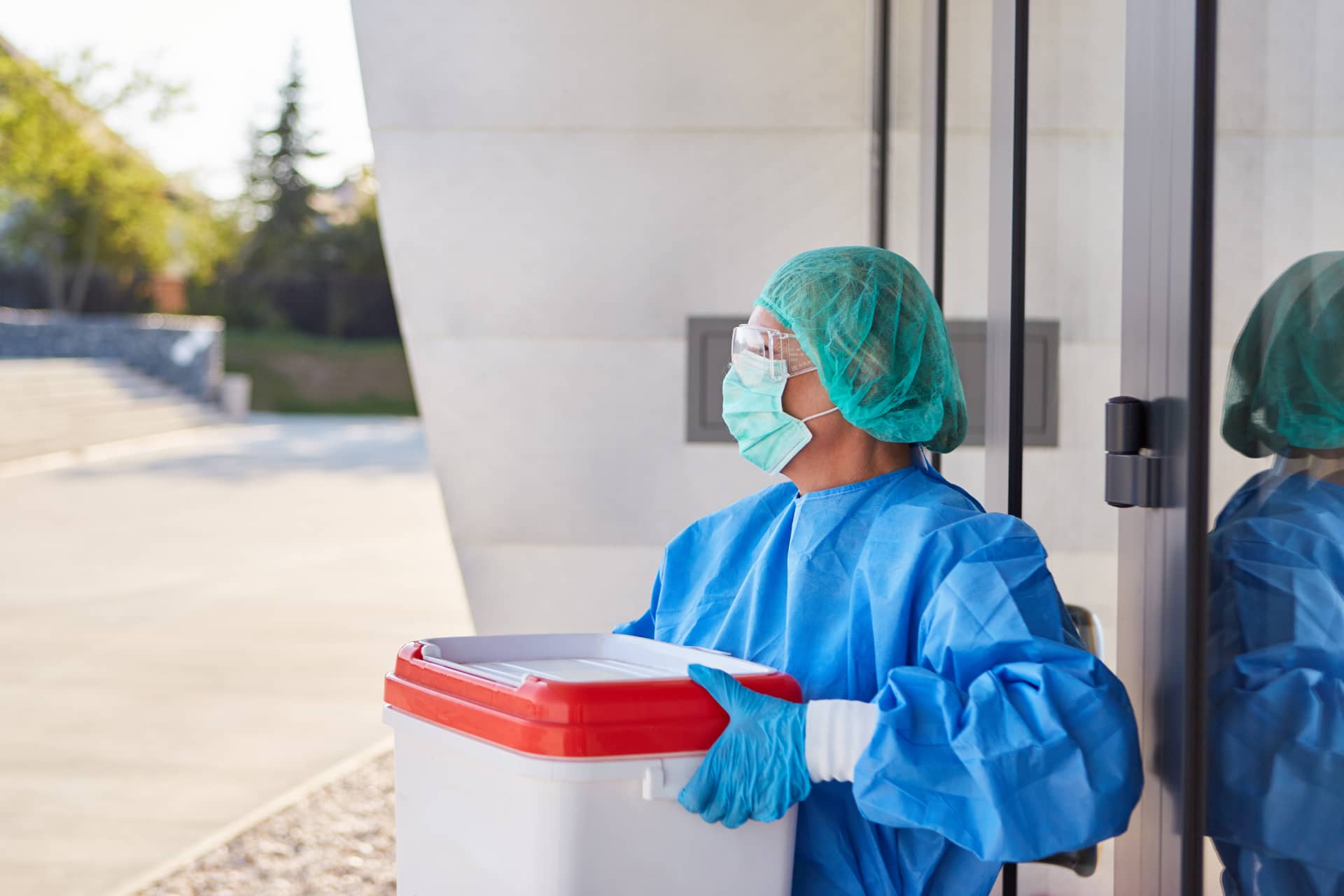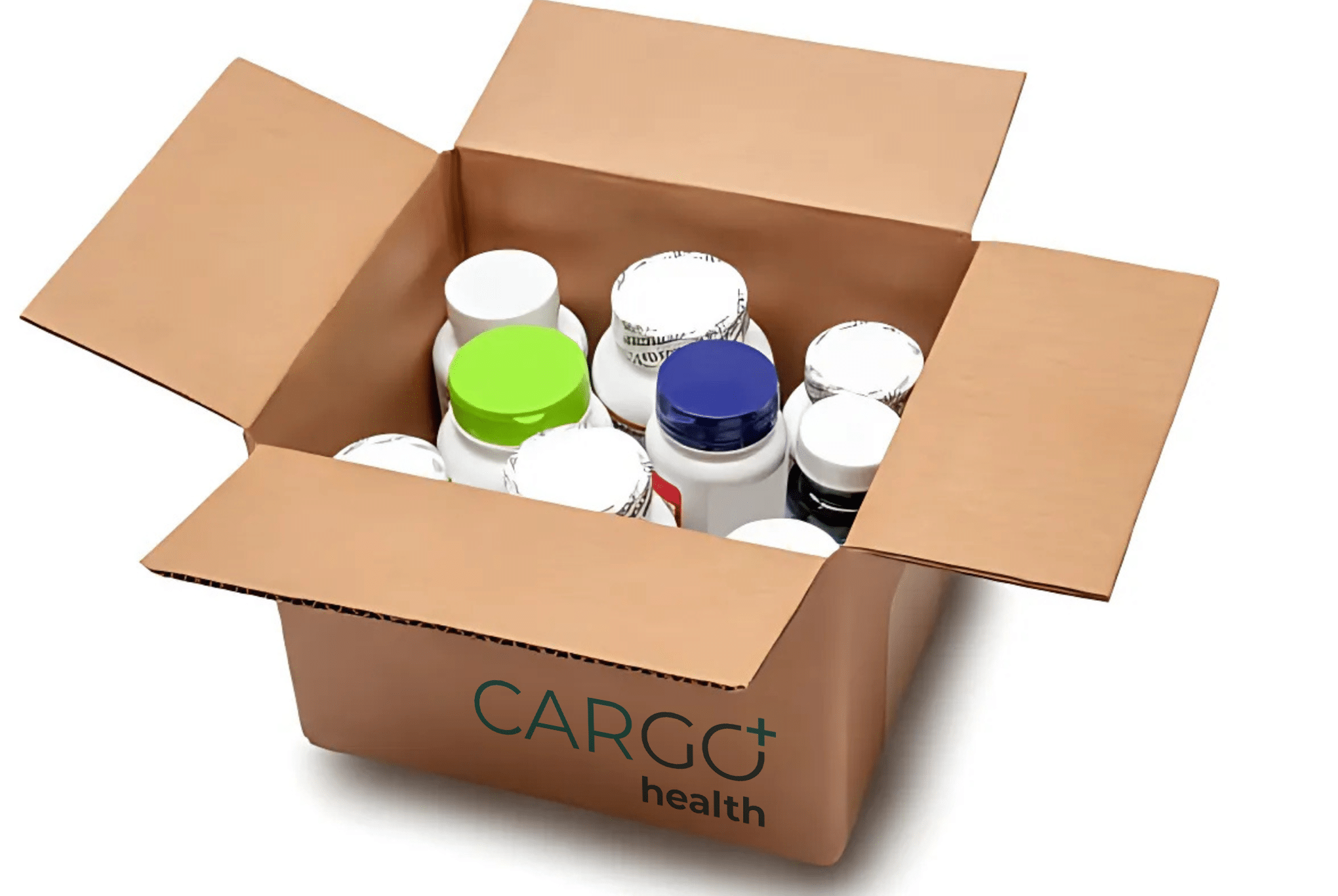The Science Behind Organ Transport: Ensuring Viability from Pickup to Delivery

Introduction
The Lifesaving Imperative of Organ Transport
Organ transplantation stands as one of the most awe-inspiring achievements of modern medicine, embodying a complex symphony of coordination, precision, and speed. The transport of organs from donors to recipients is a critical component of this life-saving process, requiring an intricate understanding of biological, logistical, and technical factors. The stakes are astronomically high; a single misstep can mean the difference between life and death.
Navigating the Transplant Journey
The journey of an organ from donor to recipient is fraught with challenges, each step demanding meticulous attention and unwavering dedication. From the moment an organ becomes available, a clock starts ticking, and the race against time begins. Ensuring the viability of the organ throughout this journey is not just a goal; it is an imperative.
Precision, Speed, and Reliability: The Triad of Organ Transport
In the realm of organ transport, there is no room for error. Precision in maintaining optimal conditions, speed in delivery, and reliability in every aspect of the process are non-negotiable. This article endeavors to unravel the complexities of this critical medical process, providing insights into the science, logistics, and ethical considerations that underpin successful organ transport.
The Organ Procurement Process
From Donor to Recipient: A Coordinated Effort
The organ procurement process is a meticulously coordinated effort involving numerous medical professionals, logistics experts, and, critically, medical couriers. Identifying a viable organ is just the first step; what follows is a race against time to ensure that the organ reaches its recipient in optimal condition.
The Critical Role of Timing
Every organ has a finite window of viability outside the human body. For hearts and lungs, this window is incredibly short, often just a few hours. For livers, kidneys, and other organs, the window is longer, but time is still of the essence. This time-sensitive nature of organ procurement demands not just speed, but also precision and reliability.
Navigating the Complexities of Organ Allocation
Organ allocation is a complex process, governed by a myriad of factors including tissue compatibility, recipient need, and geographic considerations. The coordination between donor hospitals and transplant centers is a delicate dance, requiring clear communication, rapid decision-making, and unwavering attention to detail.
Organ Preservation Techniques
The Science of Sustaining Life
Preserving the viability of an organ during transport is a scientific endeavor, rooted in a deep understanding of biology and chemistry. The goal is to maintain the organ in a state of suspended animation, minimizing cellular activity and damage until it can be transplanted.
The Role of Preservation Solutions
Preservation solutions play a critical role in this process. These specially formulated solutions help to flush out blood, cool the organ, and provide necessary nutrients and chemicals that protect cells and minimize damage. Each component of a preservation solution serves a specific purpose, contributing to the overall goal of maintaining organ viability.
Balancing the Pros and Cons of Cold Storage and Machine Perfusion
Cold storage, where the organ is cooled and transported in a preservation solution, is the most common method of organ transport. However, machine perfusion, which involves connecting the organ to a machine that simulates bodily functions, is gaining traction for its ability to extend the viability window and improve outcomes. Each method has its pros and cons, and the choice depends on a variety of factors including organ type, distance to the recipient, and available resources.
Maintaining the Perfect Temperature
Temperature plays a crucial role in organ preservation. The goal is to cool the organ to slow metabolic activity, but not freeze it, which can cause irreparable damage. This delicate balance requires precise equipment and constant monitoring to ensure that the organ remains within the optimal temperature range throughout transport.

Innovation at the Forefront of Preservation
The field of organ preservation is ripe with innovation, as researchers and medical professionals strive to extend the viability window, improve outcomes, and ultimately save more lives. From new preservation solutions to advanced machine perfusion technology, the future of organ transport is being shaped by a commitment to continuous improvement and excellence.
Transport Logistics and Protocols
Ensuring a Safe Journey: The Role of Transport Containers
Transporting an organ from donor to recipient requires more than just a fast vehicle; it demands a safe and secure environment for the organ itself. Customized transport containers, designed to maintain optimal conditions, are a critical component of the organ transport process.
Monitoring and Maintenance: Ensuring Optimal Conditions
Throughout the journey, it is imperative to monitor and maintain the conditions inside the transport container. This involves checking temperature, ensuring that the preservation solution is performing its role, and being alert to any potential issues that could compromise the organ’s viability.
The Need for Speed: Specialized Transport Vehicles and Aircraft
In the world of organ transport, time is of the essence. Specialized transport vehicles and aircraft are often used to minimize transit time, ensuring that the organ reaches its destination as quickly as possible. These vehicles are equipped with the necessary tools and technology to maintain optimal conditions and provide a safe and secure environment for the organ.
Coordination and Communication: The Heart of Successful Transport
Effective coordination and communication are the lifeblood of successful organ transport. From the moment an organ becomes available, a complex network of medical professionals, logistics experts, and couriers spring into action, working in tandem to ensure that every aspect of the transport process runs smoothly.
Preparing for the Unexpected: Contingency Planning
In the unpredictable world of organ transport, being prepared for unforeseen challenges is a necessity. Contingency planning, which involves anticipating potential issues and having strategies in place to address them, is a critical component of the transport logistics.
The Role of Medical Couriers in Organ Transport
The Human Element: Training and Qualifications
Medical couriers play a crucial role in the organ transport process, serving as the human element in a journey fraught with technical and logistical complexities. The training and qualifications of these couriers are of paramount importance, ensuring that they are equipped to handle the unique challenges of organ transport.
Speed and Reliability: The Hallmarks of Excellence
In the high-stakes world of organ transport, speed and reliability are not just goals; they are imperatives. Medical couriers must be able to navigate the complexities of the transport process, ensuring that the organ reaches its destination as quickly and safely as possible.
Real-Time Tracking and Communication: Ensuring Transparency and Accountability
The ability to track the organ in real-time and maintain open lines of communication throughout the transport process is crucial. This transparency not only ensures accountability but also provides peace of mind to all parties involved, from the medical professionals awaiting the organ to the family of the recipient.
Best Practices: Setting the Standard for Excellence
Adhering to best practices in organ transport is not just a recommendation; it is a requirement. Medical couriers must be well-versed in the latest protocols, technologies, and techniques to ensure the safe and efficient transport of organs. This includes understanding the nuances of different preservation methods, being able to operate and monitor transport containers, and maintaining a level of readiness to respond to any potential issues that may arise during transit.
The Ethical Dimension: Understanding the Gravity of the Task
Medical couriers in the field of organ transport carry a profound responsibility. They are not just transporting medical cargo; they are carrying hope, life, and the emotional weight of all involved. An acute awareness of the ethical dimensions of their work, and a deep sense of duty and compassion, are essential traits for professionals in this field. This understanding fuels their commitment to excellence and their unwavering dedication to ensuring the successful delivery of each organ.
Navigating Regulatory and Compliance Challenges
Ensuring Compliance: Understanding the Legal Landscape
The organ transport process is governed by a complex web of regulations and compliance requirements at both the national and international levels. Medical couriers and the organizations they work for must have a comprehensive understanding of these regulations and be diligent in ensuring compliance at every step of the process.
Accreditation and Certification: Establishing Credibility and Trust
Accreditation from relevant bodies and certification in organ transport protocols are critical for establishing credibility and trust in the field. These credentials serve as a testament to the courier’s expertise, commitment to excellence, and adherence to the highest standards of practice.

Continuous Training and Education: Staying Ahead of the Curve
The regulatory landscape of organ transport is ever-evolving, necessitating continuous training and education for medical couriers and all involved in the process. Staying abreast of the latest developments, understanding emerging technologies, and being proactive in adapting to changes are essential for maintaining compliance and ensuring the viability of organs during transport.
Transparency and Accountability: Building Trust
Transparency and accountability are cornerstones of the organ transport process. Organizations and individuals involved must be transparent in their practices, open to scrutiny, and accountable for their actions. This transparency builds trust among all stakeholders, from the donor and recipient families to the medical professionals involved in the transplant process.
Ethical Considerations and Impact
Navigating the Moral Landscape: Ethical Decision-Making
The organ transport process is laden with ethical considerations, from decisions about organ allocation to ensuring equitable access to transplant opportunities. Professionals in this field must be adept at navigating this moral landscape, making decisions that are not only logistically sound but also ethically just.
The Human Element: Acknowledging the Emotional Weight
The emotional weight of the organ transport process cannot be understated. For donor families, it represents a final act of generosity and loss; for recipient families, it is a beacon of hope and a chance at life. Acknowledging this emotional weight, and approaching each transport with a sense of reverence and compassion, is paramount.
Striving for Equity: Ensuring Access and Fairness
Ensuring equitable access to organ transplants, and striving for fairness in organ allocation, are ongoing challenges in the field. Professionals involved in organ transport play a critical role in this endeavor, working to minimize disparities and ensure that every individual has an equal chance at life.
The Ripple Effect: Understanding the Broader Impact
The decisions made and actions taken in the organ transport process have a ripple effect, impacting not just the immediate parties involved but also the broader landscape of organ transplantation. A deep understanding of this broader impact, and a commitment to contributing positively to the field, are essential for professionals in this arena.
The Future of Organ Transport: Innovations and Improvements
Pushing the Boundaries: Exploring New Horizons
The field of organ transport is on the cusp of a new era, with emerging technologies and innovative practices promising to push the boundaries of what is possible. From advancements in preservation techniques to the exploration of drone technology for transport, the future is bright and full of potential.
Embracing Technology: The Role of Artificial Intelligence and Machine Learning
Artificial intelligence and machine learning are poised to play a pivotal role in the future of organ transport, offering unprecedented precision in organ matching, route optimization, and transport monitoring. Embracing these technologies, while ensuring ethical considerations and human oversight, is key to unlocking their full potential.

Continuous Improvement: A Commitment to Excellence
The pursuit of excellence in organ transport is a never-ending journey, demanding continuous improvement, innovation, and a steadfast commitment to saving lives. Professionals in this field must be dedicated to learning, adapting, and striving for excellence in every aspect of their work.
The Global Perspective: Fostering International Collaboration
Organ transport is not confined by geographic boundaries, and fostering international collaboration is essential for advancing the field and improving outcomes worldwide. Sharing knowledge, best practices, and innovations across borders can contribute to the global betterment of organ transplantation and transport.
Final Thoughts
A Lifesaving Symphony: Celebrating the Achievements and Acknowledging the Challenges
The organ transport process is a lifesaving symphony, a delicate dance of science, logistics, and human dedication. While there is much to celebrate in the achievements of this field, it is also important to acknowledge the ongoing challenges and commit to overcoming them.
The Critical Role of Medical Couriers: Champions of Life
Medical couriers stand as champions of life in the organ transport process, embodying the precision, speed, and reliability necessary to ensure the successful journey of organs from donors to recipients. Their role is paramount, and their commitment unwavering, as they navigate the complexities of this critical medical endeavor.
Upholding Standards: A Commitment to Excellence and Ethical Practice
In the high-stakes arena of organ transport, upholding the highest standards of practice, ensuring compliance with regulations, and adhering to ethical principles are non-negotiable. Professionals involved in this process must continuously strive for excellence, demonstrating a deep commitment to saving lives and upholding the trust placed in them by donors, recipients, and their families.
The Future Beckons: Embracing Innovation and Continuous Learning
As we look to the future, the field of organ transport is poised for transformative change, with innovations in preservation, transport logistics, and technology paving the way for even greater achievements. Embracing these innovations, while remaining grounded in ethical practice and a commitment to continuous learning, will ensure that this vital lifeline continues to save lives and push the boundaries of what is possible in organ transplantation.
Building Bridges: Fostering Collaboration and Global Partnerships
The future of organ transport also lies in fostering collaboration and building global partnerships. Sharing knowledge, resources, and best practices across borders can enhance the efficiency of organ transport, reduce wastage, and ensure that more lives are saved. The spirit of collaboration and a commitment to global betterment are essential for driving progress in this critical field.
A Call to Action: Sustaining Momentum and Driving Change
As we conclude this exploration of the science behind organ transport, it is clear that this field represents a pinnacle of medical achievement, characterized by precision, dedication, and a relentless pursuit of excellence. Yet, there is no room for complacency. The challenges are ongoing, and the stakes are high. Professionals in medical courier and delivery services play a crucial role in this lifesaving process, and there is a collective responsibility to sustain the momentum, drive change, and continue to save lives.
The journey of an organ from donor to recipient is a testament to the power of science, logistics, and human dedication. It is a journey filled with challenges, but also with hope and the promise of a second chance at life. As champions of this cause, medical couriers and all involved in the organ transport process must continue to uphold the highest standards, embrace innovation, and work tirelessly to ensure that this lifesaving journey continues to succeed, from pickup to delivery.
Partnering with carGO Health: Elevating Organ Transport to New Heights
Navigating through the complexities of organ transport requires a partner that understands the intricacies and demands of such critical deliveries. At carGO Health, we’ve established a formidable reputation as a leader in the medical courier sector, offering services that stand up to the challenges of transporting organs and ensuring viability from pickup to delivery.

Precision, Reliability, and Speed: Our Commitment to Life-Saving Deliveries
In the delicate process of organ transport, every moment is precious. Our team at carGO Health is acutely aware of the responsibility that comes with these time-sensitive deliveries. We offer a streamlined experience from order placement to delivery, backed by transparent tracking and a comprehensive order history, ensuring that you are in control and informed at every stage of the journey.
We are proud to deliver a wide range of critical medical items, including organs & tissues, blood products, medical specimens, and more. Our services extend to various sectors within the healthcare industry, ensuring that whether you are a medical laboratory, healthcare provider, hospital, or pharmacy, we have the capabilities and expertise to support your needs.
Technology and Logistics: A Synergistic Approach
Our platform is designed to integrate seamlessly into your workflow, providing a user-friendly interface, real-time updates, and the reliability that is paramount in organ transport. We understand the unique challenges of this field, and our services are crafted to provide the flexibility and speed required, with options for on-demand delivery, scheduled routes, and recurring delivery services.
A Trusted Network, Ready to Serve
The diversity of our services showcases our commitment to catering to the entire healthcare ecosystem. From biotech and pharmaceutical companies to veterinary clinics, dental laboratories, and fertility clinics, we have built a network that is robust, reliable, and ready to serve.
Join Us in Making a Difference: Your Partner in Organ Transport
Choosing carGO Health means choosing a partner that is as dedicated to saving lives as you are. We understand the critical nature of organ transport, and we are committed to providing services that ensure safe, timely, and successful deliveries.
Get in touch with us today to learn more about how we can support your organ transport needs. Let’s work together to save lives, ensuring that every organ reaches its destination in optimal condition, ready to make a difference. With carGO Health, you have a partner that stands with you, committed to excellence in medical courier services and dedicated to the precious cargo we carry.








